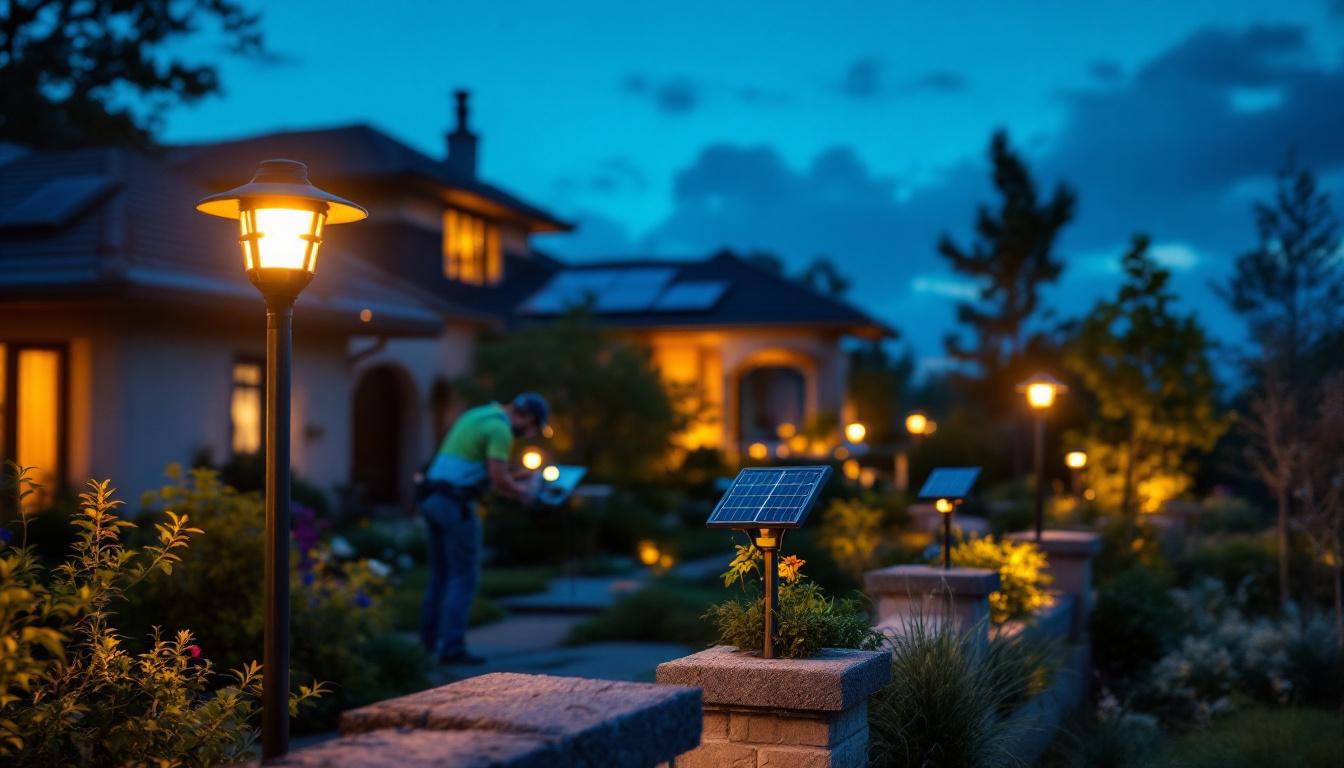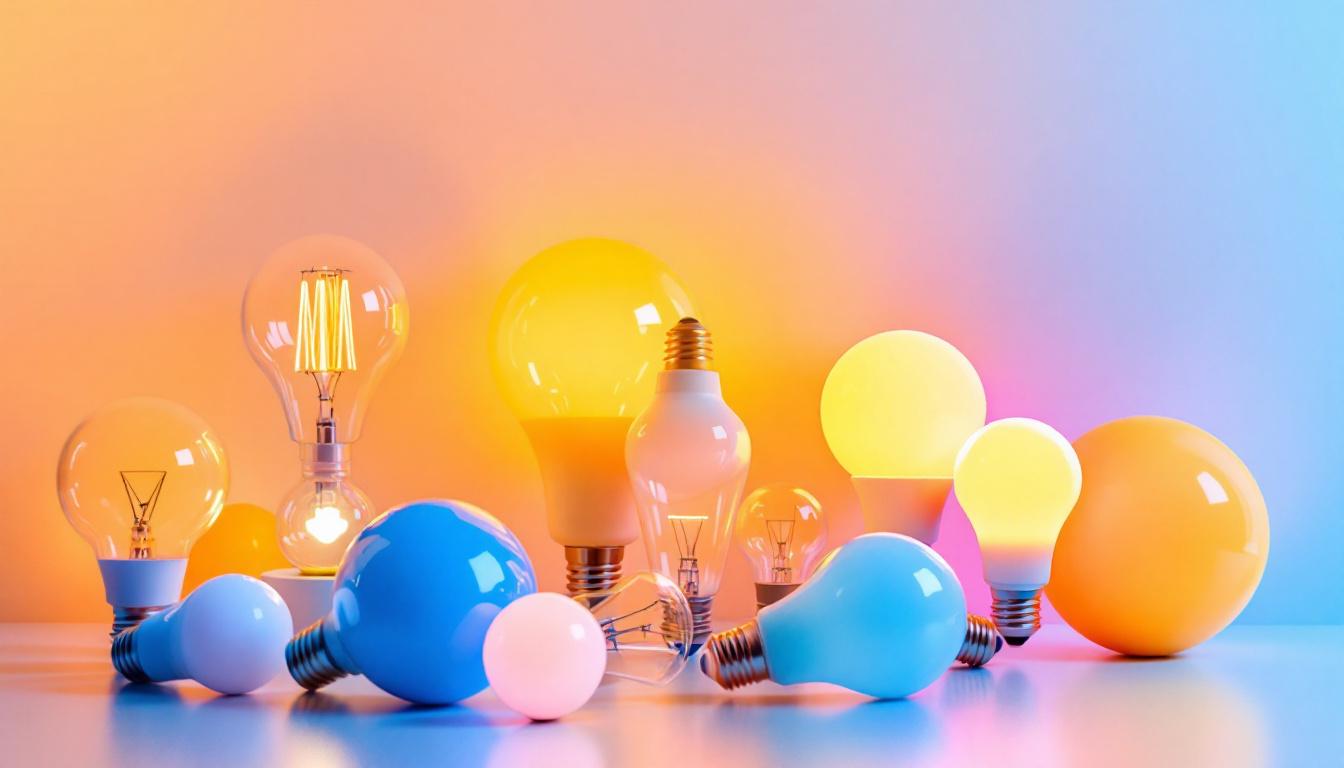
In an era where sustainability and energy efficiency are at the forefront of design and construction, solar lights have emerged as a popular choice for both residential and commercial projects. For lighting contractors, understanding the intricacies of solar lighting systems is essential to meet client demands and to stay competitive in the market. This guide aims to provide a comprehensive overview of solar lights, covering their benefits, types, installation considerations, and maintenance practices.
Solar lighting systems harness energy from the sun to power light fixtures, making them an eco-friendly alternative to traditional electrical lighting. These systems typically consist of solar panels, batteries, LED lights, and a controller. By converting sunlight into electricity, solar lights can operate independently of the grid, offering versatility and reducing energy costs. This independence from conventional power sources not only enhances energy security but also provides a reliable lighting solution in remote areas where grid access may be limited or non-existent.
To effectively utilize solar lighting, it is crucial to understand its main components:
Solar lighting offers numerous advantages that can appeal to both contractors and clients alike:
Moreover, solar lighting systems can be integrated with smart technology, allowing for enhanced functionality such as motion sensors, timers, and even integration with home automation systems. This not only increases the convenience of use but also optimizes energy consumption by ensuring that lights are only active when needed. Additionally, the aesthetic appeal of solar lights has evolved, with designs ranging from sleek and modern to classic and decorative, making them suitable for various architectural styles and landscaping themes.
In urban environments, solar lighting can play a pivotal role in enhancing public safety and security. By illuminating pathways, parks, and public spaces, these systems contribute to safer communities while reducing reliance on traditional street lighting, which often consumes significant amounts of energy. Furthermore, the deployment of solar lighting in public areas can serve as a demonstration of a city’s commitment to sustainability, inspiring residents and businesses to adopt similar eco-friendly practices.
There is a wide variety of solar lights available on the market, each designed for specific applications. Understanding these types can help contractors recommend the best options to their clients.
Pathway and landscape solar lights enhance outdoor spaces by providing illumination along walkways, gardens, and patios. These fixtures often come in decorative designs, allowing them to blend seamlessly into the landscape while ensuring safety and visibility.
Security solar lights are designed to provide bright illumination in areas that require enhanced visibility for safety and security. Flood lights can cover larger areas and often feature motion sensors to conserve energy by activating only when movement is detected.
For clients looking to add aesthetic appeal to their outdoor spaces, decorative solar lights come in various styles, including string lights, lanterns, and garden stakes. These fixtures not only provide illumination but also contribute to the overall ambiance of the environment.
Proper installation is critical to the performance and longevity of solar lighting systems. Lighting contractors must consider several factors to ensure successful implementation.
Before installation, a thorough site assessment is essential. Contractors should evaluate the following:
Correct mounting and positioning of solar lights are crucial for optimal performance. Solar panels should be angled to capture the maximum amount of sunlight, typically facing south in the northern hemisphere. Additionally, the height and placement of the light fixtures should ensure adequate illumination without causing light pollution or disturbing neighbors.
While many solar lights are standalone units, some systems may require wiring for additional features or connectivity. Contractors should ensure that any wiring is weatherproof and securely connected to prevent damage from environmental factors.
Although solar lights require minimal maintenance, regular upkeep is necessary to ensure their longevity and efficiency. Contractors should educate clients on best practices for maintaining their solar lighting systems.
Dust, debris, and bird droppings can accumulate on solar panels, reducing their efficiency. Regular cleaning with a soft cloth or sponge and mild soap can help maintain optimal performance. It is advisable to clean the panels at least twice a year or more frequently in dusty environments.
Battery performance can decline over time, particularly if they are not properly maintained. Contractors should recommend checking the batteries annually for signs of wear or corrosion and replacing them as needed. Using high-quality batteries can also enhance the overall lifespan of the solar lighting system.
Conducting periodic inspections of the entire solar lighting system can help identify potential issues before they become significant problems. This includes checking the integrity of the fixtures, ensuring that the lights are functioning correctly, and confirming that the solar panels are receiving adequate sunlight.
While solar lighting systems offer numerous benefits, they also present certain challenges that lighting contractors must navigate. Understanding these challenges and their solutions can enhance the effectiveness of solar installations.
One of the primary challenges with solar lighting is its reliance on weather conditions. Cloudy days or prolonged periods of rain can limit solar energy collection, affecting the performance of the lights. To mitigate this, contractors should recommend systems with larger battery capacities or hybrid systems that can connect to the grid as a backup.
Although solar lighting can save money in the long run, the initial investment can be higher than traditional lighting systems. Contractors should emphasize the long-term savings and environmental benefits to clients, helping them understand the value of investing in solar technology.
The solar lighting industry is continuously evolving, with new technologies emerging that enhance efficiency and performance. Contractors must stay informed about the latest advancements, such as smart solar lights that can be controlled via mobile applications or integrated with home automation systems.
As the demand for sustainable and energy-efficient solutions continues to grow, solar lights present an excellent opportunity for lighting contractors to expand their service offerings. By understanding the components, types, installation considerations, and maintenance practices associated with solar lighting systems, contractors can provide valuable insights and solutions to their clients.
Incorporating solar lights into projects not only contributes to environmental sustainability but also meets the evolving needs of consumers who prioritize eco-friendly options. By embracing solar technology, lighting contractors can position themselves as leaders in the industry, ready to tackle the challenges and opportunities that lie ahead.
Ultimately, the integration of solar lights into both residential and commercial applications signifies a step toward a greener future. With the right knowledge and expertise, lighting contractors can illuminate spaces while also illuminating the path toward sustainable living.
Ready to take the next step in providing sustainable and efficient lighting solutions? LumenWholesale is here to support your journey as a lighting contractor. Our extensive selection of spec-grade solar lights and other lighting products are designed to meet the highest industry standards, ensuring you deliver reliable and high-performance lighting to every project. Benefit from our unbeatable wholesale prices, hassle-free bulk buying, and free shipping to maximize your value. Elevate your lighting game and discover the best wholesale lighting value today with LumenWholesale.

Discover essential insights and expert advice on selecting and installing big temp LED fixtures for lighting contractors.

Explore the fascinating history of artificial light and its evolution in this comprehensive guide tailored for lighting contractors.

Discover the benefits of LED light globes in our comprehensive guide to energy-efficient lighting.

Discover the essential facts about solar-powered hanging lanterns that every lighting contractor should know.